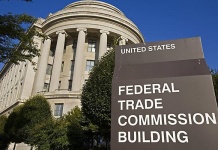 Publishers Lunch daily email is reporting that, in addition to the State of Texas, the Connecticut Attorney General is investigating ebook pricing:
Publishers Lunch daily email is reporting that, in addition to the State of Texas, the Connecticut Attorney General is investigating ebook pricing:
Now Bloomberg reports that at least one other player is Connecticut Attorney General Richard Blumenthal’s office, saying “the information was disclosed in an e-mailed statement.” The news service says they are “investigating agreements between the country’s largest e-book publishers and Amazon.com and Apple that may block competitors from offering cheaper e-book prices.”
































Why provide that link which is behind not just a paywall but comes from an exclusive email newsletter limited to “qualified book trade professionals.” The whole story comes from a press release from the CT attorney general, after all…
Does this Wall Street Journal link work for non-subscribers?
http://online.wsj.com/article/SB10001424052748704271804575405181858061108.html?mod=WSJ_hps_LEFTWhatsNews
Or this from Marketwatch?
http://www.marketwatch.com/story/connecticut-ag-probing-amazon-apple-e-book-deals-2010-08-02
Aaron –
Both of your links worked fine for this non-subscriber, thanks!
I welcome these investigations. No one has been able to explain to me yet how the agency pricing model is not price-fixing. Good read on the subject here:
http://seekingalpha.com/article/208722-is-the-agency-model-a-clear-case-of-price-fixing-collusion-in-the-ebook-market
Totally agree with Angie.
And thanks for that added link.
Angie: Not all price-fixing is illegal. In the US, manufacturers have been permitted to set minimum selling prices since 2007 (see the Supreme Court’s Leegin decision).
Also, it has long been legal in the US for sellers to set minimum selling prices on consignment sales. That’s what the “Agency Model” terminology is intended to suggest: that the publishers are the actual sellers of the product. That the bookstores aren’t buying product and then re-selling it; they’re just taking orders from customers and delivering the product.
Different rules apply elsewhere. The UK forbids publishers from setting prices. Germany requires publishers to set prices.
Re the history of how this unfolded, since I was watching it closely, I offer some earlier articles + sourcing, at http://bit.ly/kwagency